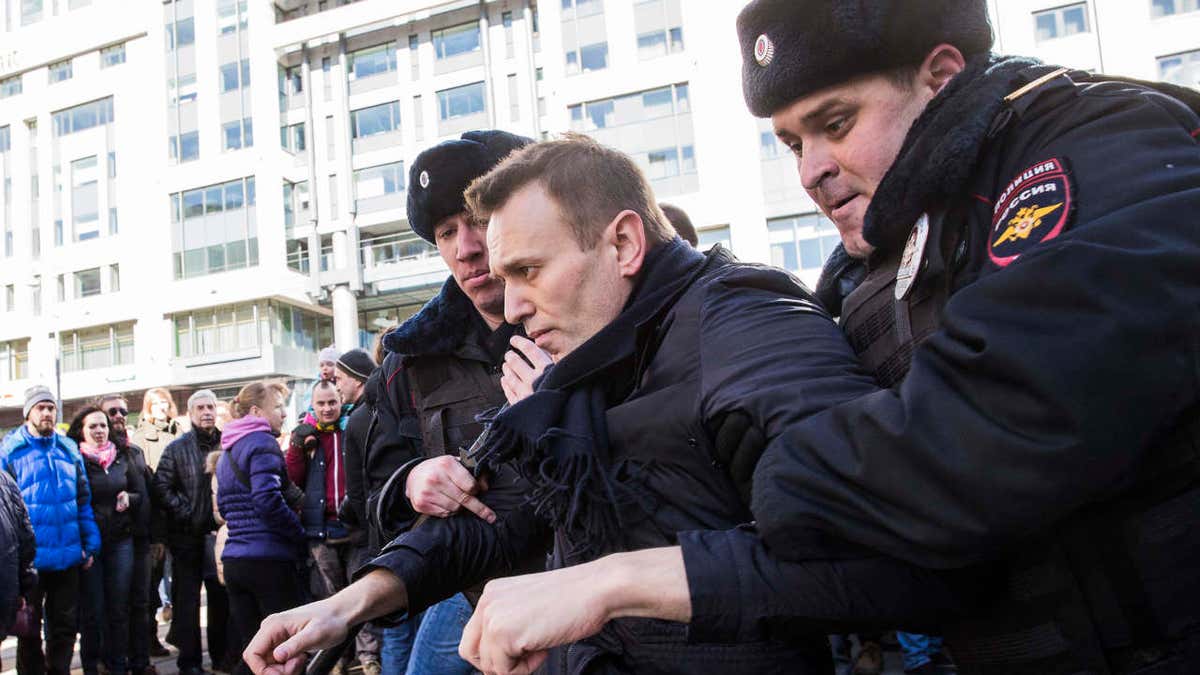
In this photo provided by Evgeny Feldman, Alexei Navalny is detained by police in downtown Moscow, Russia, Sunday, March 26, 2017. (Evgeny Feldman for Alexey Navalny's campaign photo via AP)
The State Department condemned the arrest of an anti-Vladimir Putin critic and hundreds of other protesters who were demonstrating against the Kremlin Sunday.
"The Russian people, like people everywhere, deserve a government that supports an open marketplace of ideas, transparent and accountable governance, equal treatment under the law, and the ability to exercise their rights without fear of retribution," State Department spokesman Mark Toner said in a statement.
Alexei Navalny, the anti-corruption campaigner who is Putin’s most prominent critic, and hundreds of others were arrested in a nationwide show of defiance. Navalny, who was arrested while walking from a nearby subway station to the demonstration at Moscow's iconic Pushkin Square, was the driving force of the demonstrations. He called for them after his Foundation for Fighting Corruption released a report contending that Prime Minister Dmitry Medvedev has amassed a collection of mansions, yachts and vineyards.
Navalny is no stranger to the Russian government. He has served several short jail terms after arrests in previous protests and has twice been convicted in a fraud case, but given a suspended sentence. Even though the conviction technically disqualifies him, he intends to run for president in 2018 — an election in which Putin is widely expected to run for another term. Putin has dominated Russian political life, as president or prime minister, since 2000.
Almost all of Sunday’s protests were unsanctioned, but thousands braved the prospect of arrest to gather in cities from the Far East port of Vladivostok to the “window on the West” of St. Petersburg.
No overall figures on arrests or protest attendance were available. Some Russian state news media gave relatively cursory reports on the demonstrations, while the state news TV channel Rossiya-24 ignored them altogether in evening broadcasts.
There were no comments reported from Putin, Medvedev or other top Russian politicians, leaving in doubt what the Kremlin's strategy may be for countering the protests. Previous waves of demonstrations have dissipated through inertia or the intimidation of increasingly punitive measures; under a 2014 law, holding an unauthorized protest is punishable by 15 days in jail, or five years imprisonment for a third offense.
The Associated Press contributed to this report.
